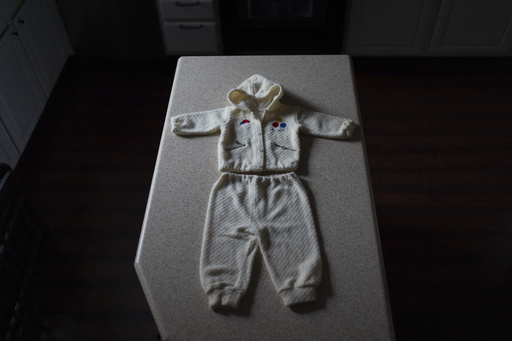
The United States has facilitated the adoption of hundreds of thousands of children from different countries into American families. However, a significant number of these children have been left without citizenship due to a persistent bureaucratic loophole that the government has acknowledged for many years yet failed to address.
Many of these adoptees are forced to live in fear and obscurity, worrying that bringing their situation to the government’s attention might lead to deportation back to the countries from which they were supposedly saved. Some have already experienced such outcomes. A bill aimed at rectifying this issue has been proposed in Congress for over a decade and enjoys support from a unique bipartisan group, including liberal immigration organizations and the Southern Baptist Convention. Nonetheless, it has yet to pass. Advocates attribute this stagnation to the increasingly polarized climate surrounding immigration issues, which has hindered progress toward extending citizenship to anyone, including these adoptees who are legally considered children of American citizens.
The stakes feel particularly high for these individuals, especially in light of concerns that former President Donald Trump could return to power, given his track record of advocating for extensive immigration raids and detention centers.
The origins of the current adoption system can be traced back to the aftermath of the Korean War. During that time, American families were eager to adopt due to a decrease in the domestic availability of babies, caused by changing societal norms and increased access to birth control. At the same time, Korea was looking to alleviate its population burden.
To meet the surging demand for adoptable children in the U.S., adoption agencies began operating rapidly, often without adequate safeguards to ensure that these parents could provide genuine care or secure citizenship for their adoptees. Intercountry adoptions were integrated into a framework designed for domestic adoptions, which allows state courts to issue new birth certificates that show the adoptive parents’ names, suggesting that these children enjoyed the same rights as biological offspring.
However, state courts have no authority over immigration matters. Once the costly and lengthy adoption process was complete, it was up to the adoptive parents to initiate the naturalization of their adopted children, a step that many failed to undertake.
In an effort to correct this oversight, Congress passed the Child Citizenship Act in 2000, acknowledging the plight of adoptees trapped in legal limbo. While it provided automatic citizenship for adopted children, its focus was primarily to streamline the process for adoptive parents and only applied to children under 18 at the time of enactment, leaving those born before February 27, 1983, without automatic citizenship. Estimates regarding the number of affected individuals range from around 15,000 to 75,000, and subsequent attempts to amend this legislation have failed.
Hannah Daniel, public policy director for the Ethics and Religious Liberty Commission, labeled the ongoing inaction as a frustrating example of government inefficiency. She pointed out that foreign adoption is especially significant for Evangelical congregations, who promote it as a moral imperative.
Adoptees typically discover they lack citizenship unintentionally, often when applying for passports or seeking government benefits. One woman came to this realization in her senior years when her application for Social Security, to which she had contributed throughout her working life, was denied. Inquiry into their legal status can pose risks, as it may alert immigration authorities to their undocumented status.
For some, finding a solution can involve the lengthy and costly naturalization process, which requires them to re-enter the immigration system as if they were newly arrived. It can take years, involve significant expenses, and expose individuals to repeated immigration office rejections due to technical errors. For others, the situation seems hopeless due to the specifics of their entry into the United States: many arrived under tourist or medical visas, particularly military families, who did not utilize formal adoption agencies.
The implications of their precarious legal status can severely limit their ability to work or obtain driver’s licenses, and eligibility for assistance programs, including educational financial aid and Social Security, may also be denied. In some cases, individuals with criminal records, even minor infractions, have faced deportation back to their countries of origin.
The lives of affected adoptees paint a bleak picture:
— One woman, adopted from Iran by her father, an Air Force veteran, remains uncertain about her eligibility for Social Security and lives with the constant worry of government action against her.
— Joy Alessi, who was adopted from Korea as an infant, spent decades in hiding after discovering her citizenship had not been secured. She finally gained naturalization at the age of 52, but only after missing countless opportunities available to citizens.
— Mike Davis, who was adopted from Ethiopia, faced deportation after struggles with drug use. Now living in impoverished conditions in Ethiopia, his family in the U.S. struggles to survive without him.
— Leah Elmquist, a U.S. Navy veteran adopted from South Korea, shared her intense fear following the 2016 election, emphasizing the emotional toll of her long, challenging path to naturalization.
— Lastly, Debbie and Paul, parents of two special needs children adopted from Romania, often worry for their children’s future in light of their undocumented status, particularly when considering the risk of separation in detention facilities.
This narrative highlights an ongoing investigation that seeks to illuminate the serious ramifications of these loopholes in the adoption and immigration system, reflecting on both personal and broader societal implications.
